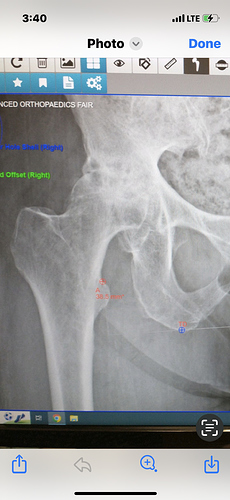I really don’t have a lot to add here. So much good advice and information. I have had both hips replaced: right one over 10 years ago anterior; left one this past October posterior.
For me,anterior was much easier to recover from. But I was 10 years younger. They kept me one night, but had me up walking same day and doing stairs on day two. Never used crutches or a walker. Used a cane briefly. Started PT on Monday after surgery on Friday. Had to have a driver for a couple of weeks.
Now I am 70 and th is last one was more difficult. It was done outpatient. A lot more pain at the incision site and restrictions on movement. But stopped pain meds by Saturday following Monday surgery. Beginning week 2, things improved a little each day.
Both times, resumed riding 6-7 weeks out. Resumed Pilates too. I have arthritis in virtually every joint. Having a knee injected tomorrow. Have severe scoliosis with major pinched nerve in my spine but injections help. also had a right shoulder replacement.
So I can understand your urgency to keep moving. PT helps a lot to get you started and it gets progressively more challenging in the exercises. Ice is your friend. Pretty much constant icing. If you don’t have one of those little machines that pumps ice water through a poultice type wrap, get one. I am sure you can find a used one. Looks like a small ice chest.
With the posterior incision, I couldn’t sleep on either side. But the couch worked for sleeping on my back (better than my bed). Recliner was not comfortable, although it saved my life after shoulder replacement.
Well, for someone who didn’t have much to say, I certainly blathered on. You will do great!!!


 no need to reply as it may trigger too much feedback for your brain cell to ‘process’ during this anxious time ~ just know the Z-gang is thinking of you
no need to reply as it may trigger too much feedback for your brain cell to ‘process’ during this anxious time ~ just know the Z-gang is thinking of you  ~
~

